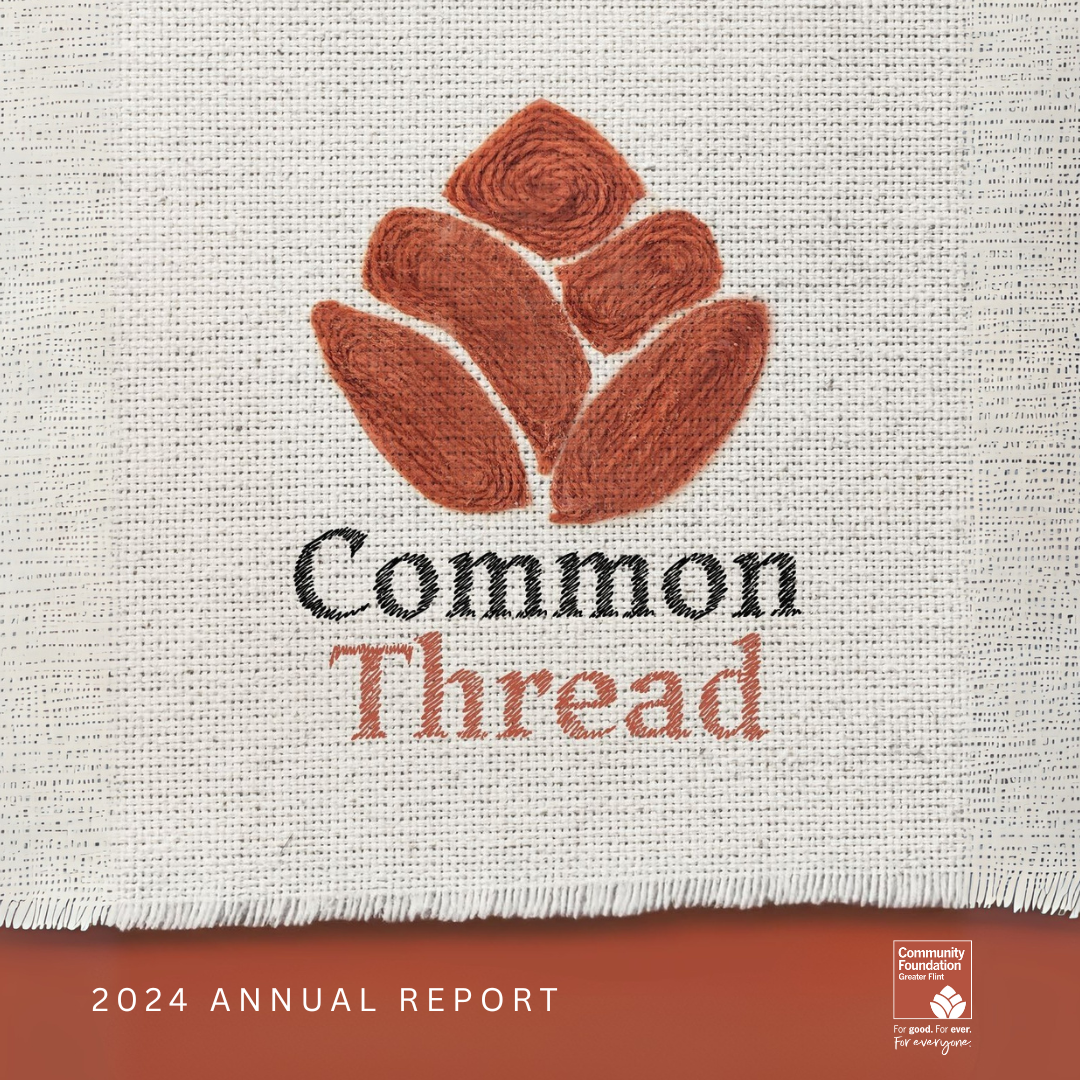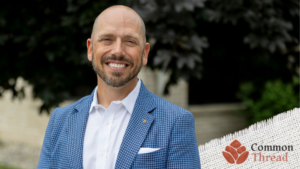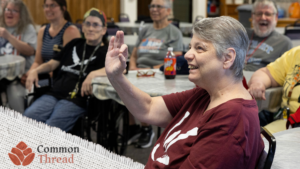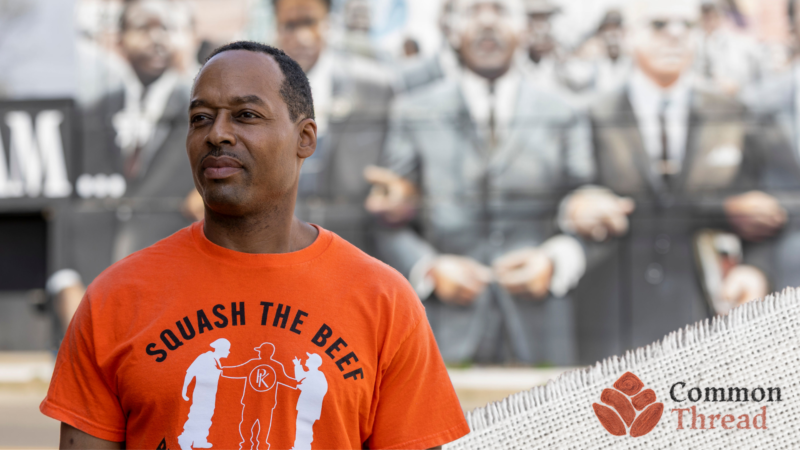
In Flint neighborhoods, a flash of neon orange signals the arrival of the Peacekeepers. Their hats, shirts, and billboards deliver a clear message: “Squash the beef before the grief.”
“When you see orange coming, it means peace is on the way,” says Jalil X, director of the Flint chapter of the Peacekeepers Global Initiative.
The Peacekeepers Global Initiative was founded more than 15 years ago by Emeritus Captain Dennis Muhammad, who envisioned a grassroots movement grounded in community presence, proactive engagement, and peacebuilding. Flint is the 33rd of 34 chapters established, and Jalil was personally appointed by Captain Muhammad to lead the local effort.
Peacekeepers like Jalil are showing up in bold and consistent ways. They step in early to mediate conflict and prevent violence. For Jalil, it’s also a personal mission to help restore the community he once disrupted at a young age.
“The older I got, the more I realized I needed to give back,” he says. “I can never repay the community, but I can do all I can while I’m here to help make it better.”
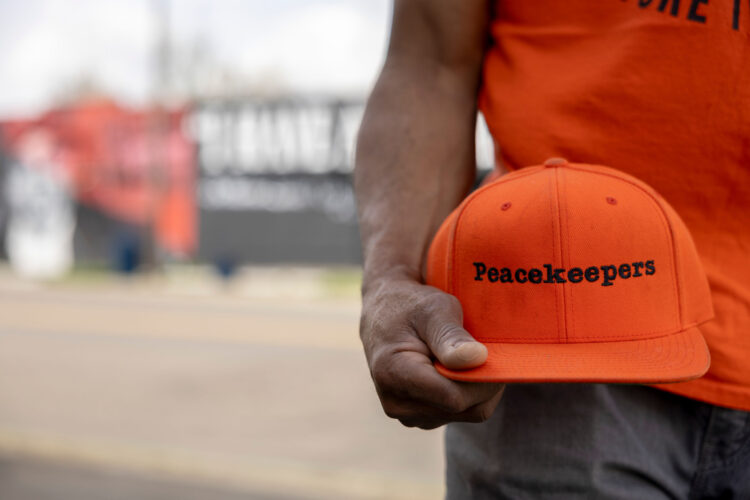
The Peacekeepers have relied on principles of mediation and community violence intervention, which uses evidence-based, community-driven strategies to prevent and interrupt violence by establishing relationships with people involved in or affected by violence in the community. They work directly with people impacted by violence and focus their outreach in “enclosed communities” that have been historically underserved and over-policed.
One of those neighborhoods is Midway Square Townhomes, formerly Evergreen Regency. Long stigmatized and isolated, the area is now a focal point of the Peacekeepers’ work.
“We choose what they consider to be the worst parts, to try to deal with the conditions, and help make it better,” Jalil explains. “We believe that before it became worse, it was a good place. We not only try to bring it back to what it was but make it better than that.”
Jalil walks through one scenario: he received a call from a mother concerned about her son’s escalating conflict. He and his team stepped in—meeting with both youths, facilitating a sit-down in a local church, and guiding them through peaceful resolution.
“It turned out the whole conflict was really about nothing—just outside noise and misunderstanding,” he says. “They shook hands and hugged.”
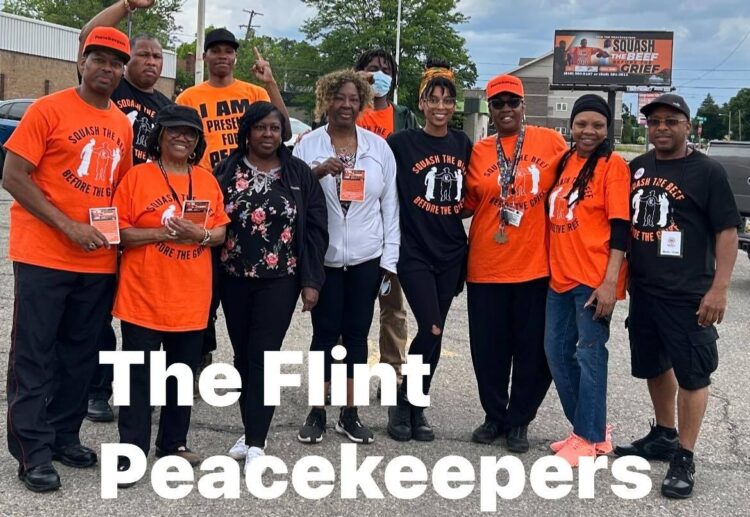
This on-the-ground commitment aligns closely with the Community Safety Collaborative (CSC), a countywide network supported by the Community Foundation of Greater Flint. The CSC brings together cross-sector partners to guide Flint’s Community-Based Violence Intervention and Prevention Initiative (CVIPI) using public health principles and data-driven strategies.
As a CSC partner, Jalil brings real-time knowledge to the table—and helps connect residents to resources and solutions.
“The collaborative, to me, has been a blessing in disguise,” Jalil reflects. “It allows multiple groups with diverse talents to come together for one goal: to help improve the quality of life in our communities and make our communities a decent and safe place to live.”
But the Peacekeepers don’t just respond to crises. They’re building long-standing systems of support. Jalil notes that young people can tell when organizations show up only for a “photo op”—and when they don’t come back. That’s why he and his team make a point to return regularly, and with a purpose.
“We’re starting skilled trades training, parenting classes, job readiness and coding workshops,” Jalil says. “If we can meet the unmet social needs that come with enclosed communities—joblessness, lack of education, childcare—then we’ll have a real chance at addressing the deeper issues that grow from them.”
Jalil and the Peacekeepers’ work, and the broader vision of the Community Safety Collaborative, make it clear: creating a thriving community where everyone can succeed requires showing up—with presence, partnership, and peace.
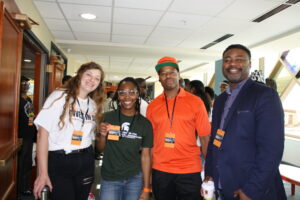
Community Safety Collaborative
The CSC brings together community organizations, residents, and local leaders to reduce violence in Flint. Through public health approaches, trauma-informed strategies, and local partnerships, the CSC supports programs like the Peacekeepers to ensure every neighborhood in Genesee County has the opportunity to thrive.

